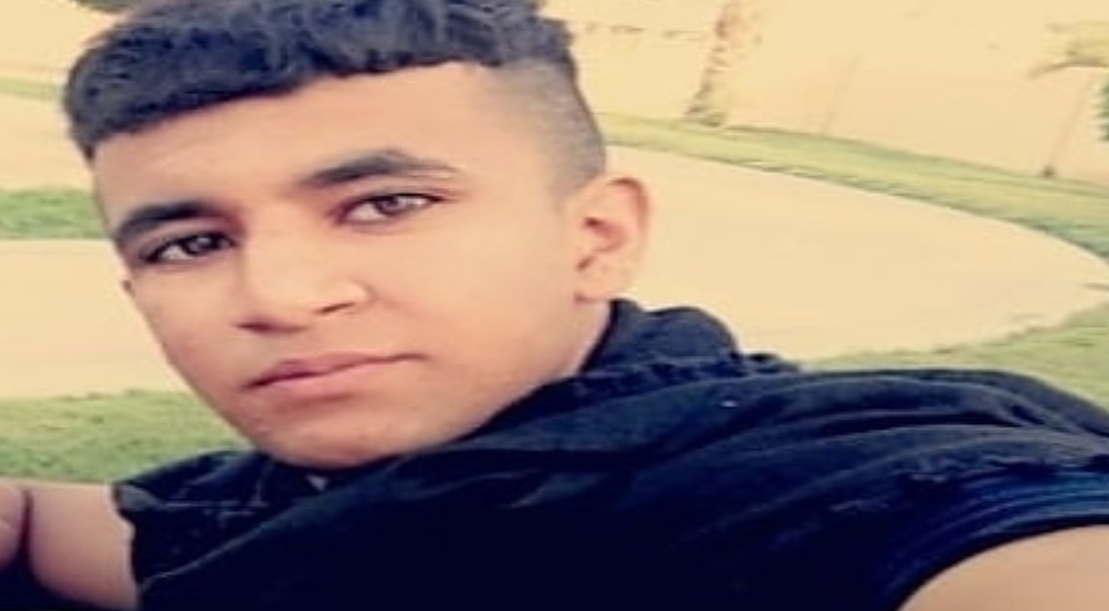Kameel Hasan was a 16-year-old high school student when he was arrested in December 2019. Bahraini authorities targeted Kameel as a form of reprisal against his mother, Bahraini activist Najah Yusuf, who is a former prisoner of conscience who had been released in August 2019. He had been targeted since 23 April 2017 when he was accompanying his mother to the Security Complex which falls under the National Security Agency; he was questioned, and his mother was threatened with arresting or killing Kameel. After being arbitrarily detained, Kameel was convicted and imprisoned following unfair trials. He is currently in the New Dry Dock Prison, reserved for inmates under the age of 21.
On 30 December 2019, Kameel’s father received a phone call from the Nabih Saleh police station, who summoned his son. Upon Kameel’s request and decision, Kameel’s father turned him in to the police the next day, on 31 December 2019. Before he was turned in, Kameel’s house had been raided repeatedly, and he had been chased down the street various times. Kameel was wanted for political reasons; it is considered that he was targeted due to his mother’s activism. Indeed, Najah Yusuf had been arrested in 2017 for criticizing Bahrain’s hosting of Formula 1 amidst the worsening human rights violations. She was arbitrarily detained – as declared by the WGAD – and tortured. She was subsequently released on 10 August 2019 due to international pressure. On the day of her release, Kameel was chased down the street following a failed trap set for him by authorities, and he was questioned about his mother’s activity on social media during interrogation.
Following the arrest, Kameel was taken to Al-Qalaa Hospital for routine examinations and then to the Criminal Investigation Directorate (CID). After that, he was transferred to the Royal Academy of Policing, where he was tortured. He was then taken to Building 15 in Jau Prison, where he remained until 2 January 2020. During this time, his mother was told he was at the CID, but she could not get in contact with her son.
During interrogation, Kameel was subjected to torture and beatings in order to extract a confession. He was beaten all over his body, with a focus on his genitals, and was forced to stand for long periods of time. Kameel did not share details about the torture over the phone and only generally spoke of it during his mother’s visits, out of fear that he would face more torture for speaking up. His lawyer has not been permitted to attend the interrogations because he still has not been granted power of attorney, despite Kameel’s signed appointment.
On 3 January 2020, Kameel was taken to the CID, where he was finally able to call his mother to tell her he would be presented to the Public Prosecution Office (PPO) that day. At the CID, Kameel signed pre-prepared statements without reading their contents. At the PPO, Kameel did not undergo any interrogations and was once again forced to sign pre-prepared records without reading their contents.
Kameel was consequently taken to pre-trial detention. He was able to call his mother again two days after his transfer. During the call, he told her that he was going to be transferred to the New Dry Dock Detention Centre.
Between 22 October 2019 and 25 March 2020, Kameel was sentenced in multiple cases, and he still has more cases pending in court. The charges he is convicted of include illegal assembly, possession of incendiary bottles, rioting, intentional arson, joining a terrorist group, and transferring money meant to fund terrorist activities. The latest case he was convicted for involved individuals who were detained in 2017 although the crimes were allegedly committed in 2018. Kameel’s prison sentences reached an accumulated total of 26 years but, following appeals, were reduced to 20 years and 10 months.
Kameel is scared of official government bodies because of their lack of justice or fairness and is also afraid of being subjected to another investigation where he would be tortured. During a visit, he told his mother that prisoners fear punishment, that they are beaten in the absence of surveillance cameras, and that their hair is being shaved off completely. His mother is currently unable to visit him due to the COVID-19 pandemic.
Kameel’s enforced disappearance and the torture and mistreatment he has been subjected to are not only violations of the International Covenant for Civil and Political Rights (ICCPR) and the Convention Against Torture (CAT), but also of the Convention on the Rights of the Child (CRC), considering the fact that Kameel is still a minor. Additionally, considering the fact that Kameel was not promptly presented before a judge, was denied access to his attorney during his interrogation and trial, and was forced to sign papers without knowing their contents, Bahraini authorities have infringed on his due process rights and his right to a fair trial, which is a violation of Articles 9 and 14 of the ICCPR.
Americans for Democracy & Human Rights in Bahrain (ADHRB) calls on the government of Bahrain to release Kameel. If any charges can be brought against him, ADHRB calls for a retrial to be conducted in accordance with international standards of fair trials. Further, ADHRB urges the government of Bahrain to investigate Kameel’s allegations of torture, with a view to holding perpetrators accountable.





